In the UK, only 70% of the 100,000 people estimated to be infected with HIV are aware of their condition.
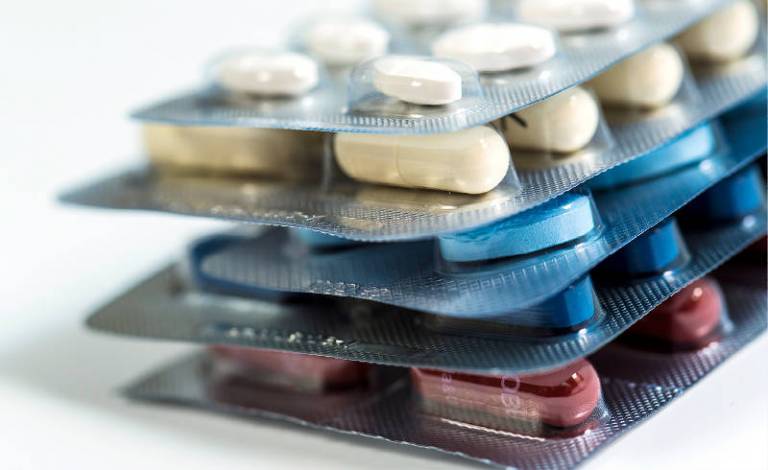
HIV is now considered to be a treatable disease, thanks to the advent of antiretroviral therapy (ART).
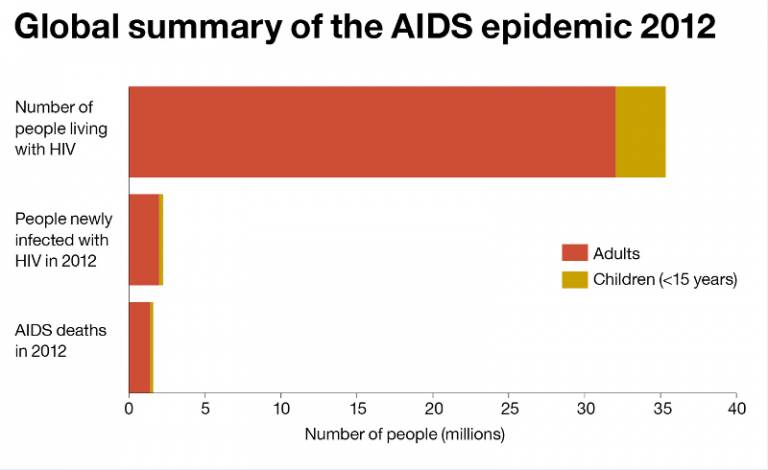
In the UK tehre are about the same number of undiagnosed cases of HIV amongst heterosexuals as there are amongst homosexuals, despite there being a higher prevelance of HIV amongst homosexual men.
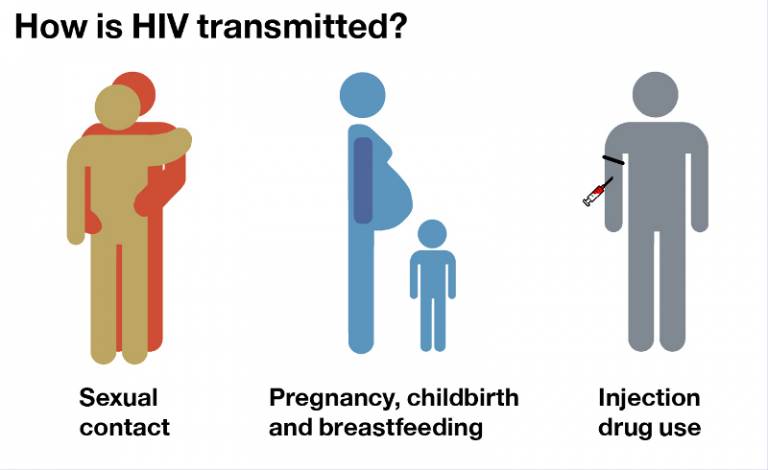
The most common way of getting HIV in the UK is through unprotected sex. Other ways of getting HIV include: using a contaminated needle, syringe or other injecting equipment; transmission from mother to baby during pregnancy, birth or breastfeeding; through oral sex.
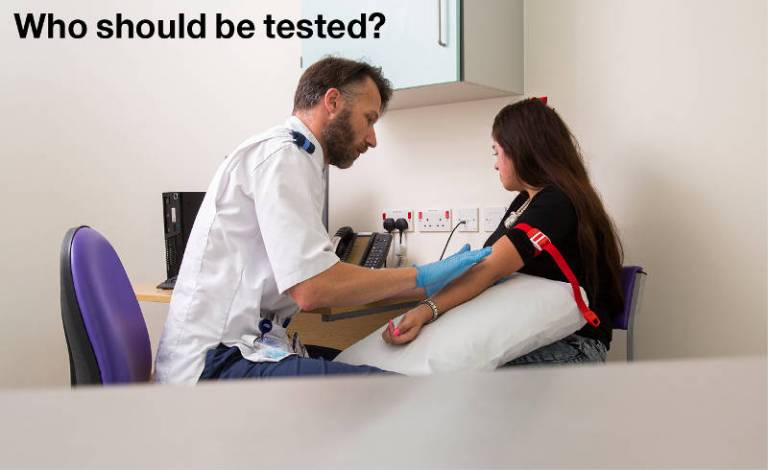
A HIV test is a simple blood test. Anyone who is sexually active should be tested. It is especially important to test for HIV if you have medical problems, such as sexually transmitted diseases, tuberculosis, lumphomas, neutropenia, shingles, chronic skin problems, oral candida etc. Full testing guidelines are available on the BHIVA website.
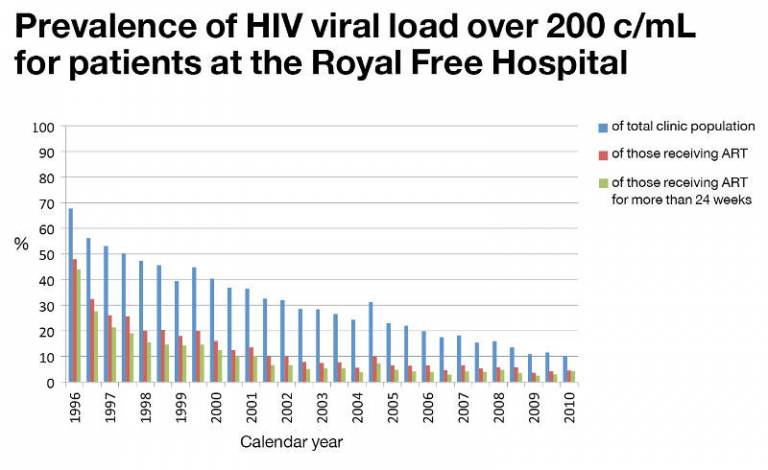
Thanks to the enormous progress in treatment over the years, we have achieved control of the virus in the blood of the majority of our patients.
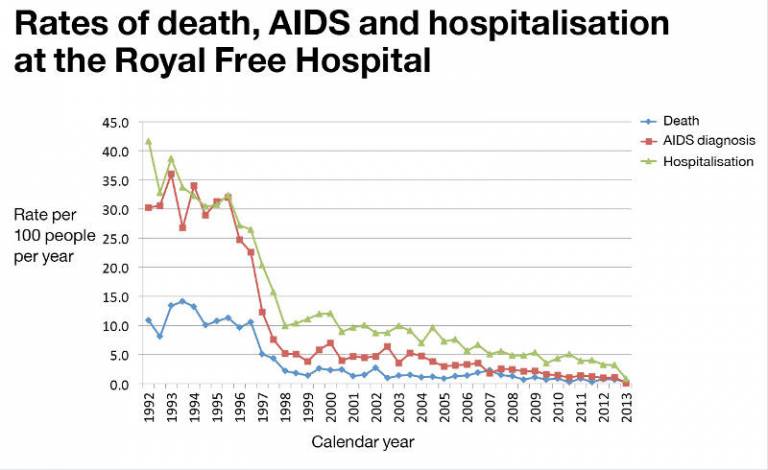
The graph shows a dramatic decrease in rates of both sickness and death for HIV patients over time, thanks to the development of new antiretroviral therapies.
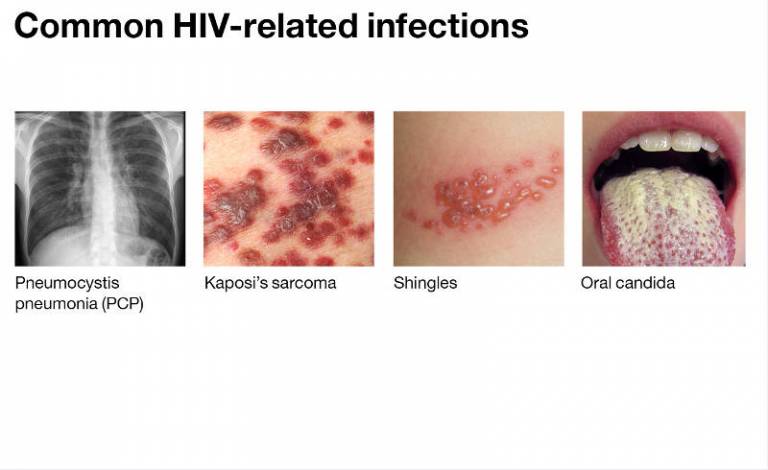
Most people who are infected with HIV experience short, flu-like illness that occurs two to six weeks after infection. After this, HIV often causes no symptoms for several years. If left untreated, HIV will weaken your ability to fight infections so much that you become vulnerable to serious and potentially life-threatening illnesses.
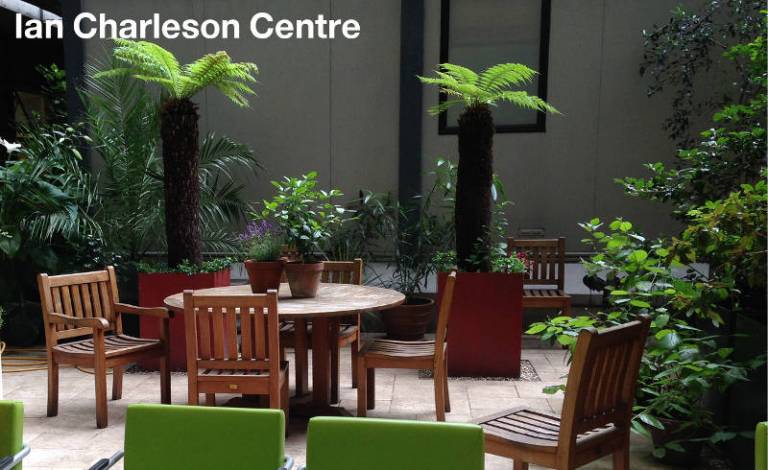
The Royal Free has been at the forefront of HIV research and treatment since 1992 and is well set up to diagnose HIV early. We have an open access testing service at the Ian Charleson Centre, and a sexual health clinic for walk-in appointments. The Centre is named after the Chariots of Fire star, who was diagnosed with HIV in 1986 and died in 1990).
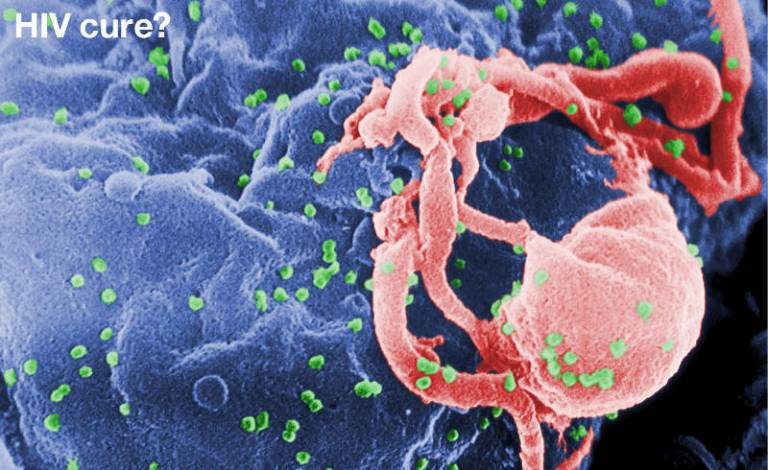
HIV reservoirs consist of viruses that antiretroviral therapy or the immune system cannot get rid of. This is one of the major obstacles that currently prevents us from curing HIV. We have several programmes in place with UK and other European partners to help us get a better undertsanding of why we cannot eradicate HIV with antiretroviral drugs.
 Close
Close

